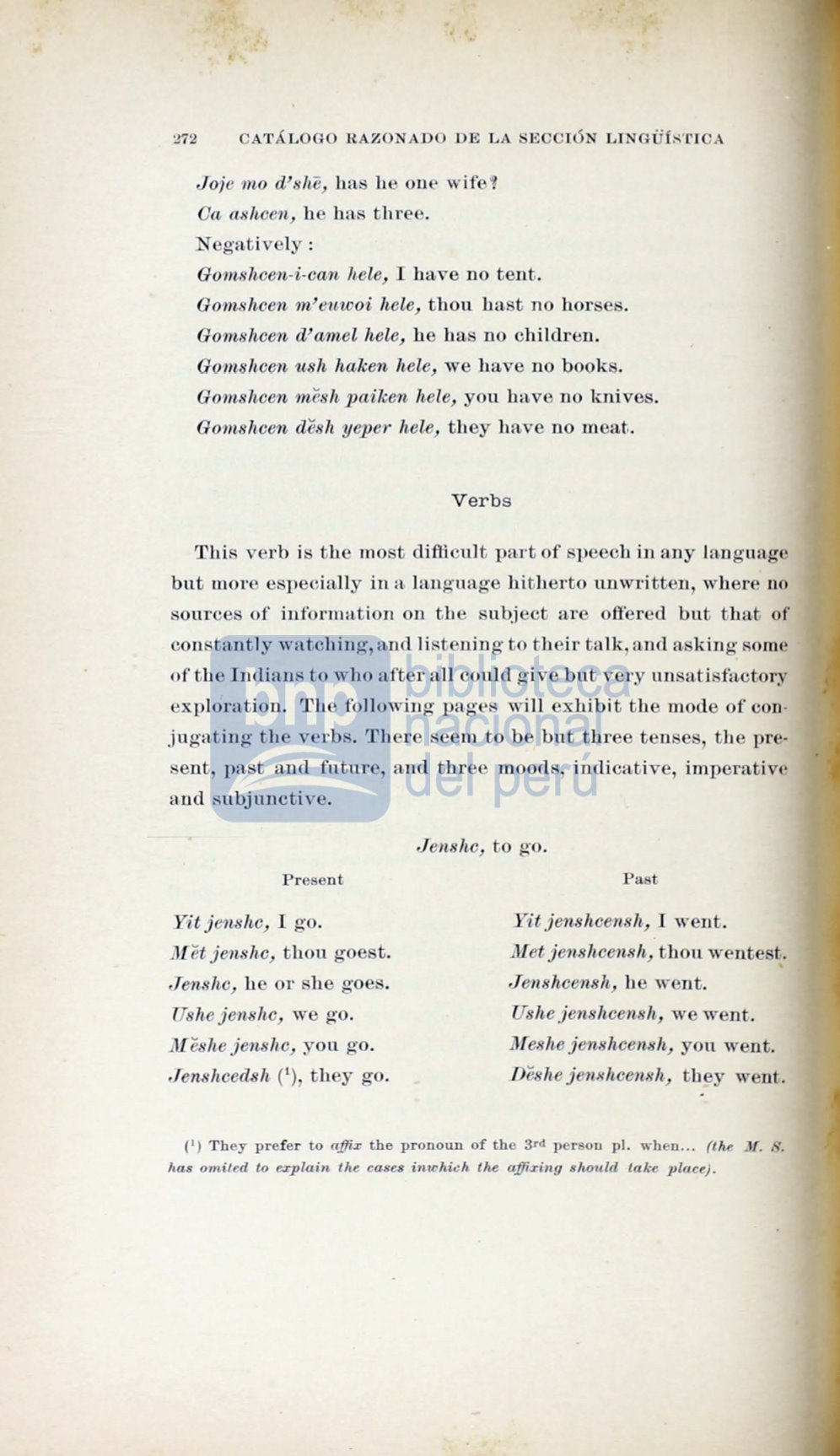

272
CATÁLOGO RAZONADO DE LA SECCIÓN Lh GÜÍ>i'l'ICA
Joje mo d'she,
has b e
oae
wife'I
Oa cislwen,
b e ha
three.
Negatively :
Gomsheen-·i-ean Ji.ele,
l
have no tent.
Gomsheen m'eitwoi hele,
thon hast no horses.
Gomsheen d'annel hele,
he has no children.
Gomshcen itsh halcen hele,
we have no books.
Gomshcen mesh pailcen hele,
yon bave no knive .
Gomshcen desh yeper hele,
tbey bave no meat..
Verbs
This verb is the most difficult part of peech
in
any language
bnt more especially in a lang·uage hitberto unwritten, where
no
ources
of
information on tbe subject are offered bnt that of
constantly watching, and Ji, tening to their talle, and asking some
of'
the
India.nsto who af'ter all could give bnt very unsati factory
exploration. The following pag·es
will
exhibit the mocle of con–
juga.ting the verbs. There eem to b bnt three tense , th
pre–
sent, past ancl future, and three moods. indicative, imperative
and subjunctive.
Present
Yit j enshc,
I
go.
Jlfet
jenshc,
t hou goest.
J enshc,
he or she goe .
Ushe jenslw,
we go.
M 'éshe.fenshc,
yoL1 go.
J enshcellsh
(')
they go.
.Jenshc,
to go.
Past
Yit .fenshcensh,
I
went.
1Wet .fenslwensh,
thou wentest.
J enshcensh,
b went.
Ushe.fenshcensh,
we went.
JJfeshc j enshcensh,
you went.
D'éshe jenslwensh,
tb
y
went.
( 1 )
They prefer to
affiz
the pronoun of tho 3rd per ou pi. when ...
(lhe
JI.
has om.Ued to explain the cases imohic;b the affi:ring sltou/cl take. JJlnce).
















